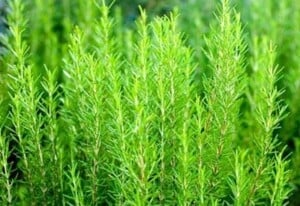We get cravings for greens this time of year. Sure, you lucky gardeners with indoor growing systems or hot houses may be eating home-grown kale or lettuce or spinach here in the dead of winter. But what’s a renter without his own garden patch to do? Grow sprouts.
Sprouts are one of nature’s most nutritious foods, full of vitamins, minerals, and amino acids as well as a great source of roughage. Lentil sprouts are 26% protein; soy bean sprouts, as you can guess, even higher. Radish sprouts contain large amounts of vitamins C and A as well as being a good source of calcium. Sunflower sprouts have lots of vitamin D. Clover sprouts are a good source of cancer-fighting isoflavones and alfalfa sprouts contain phytoestrogens needed for hormonal balance. If you’ve been scared away from sprouts because of contamination incidents with store -bought products, there’s a simple solution. Grow them yourself.

100% ORGANIC!
Sprouting Seeds
These top quality sprouting seeds include old favorites and extra-healthy choices.
View allIt’s easy to enjoy the health benefits of sprouts — whether it’s greens and grasses, beans, nuts or grains — in your own home with our seed sprouting kits and supplies. No more high grocery store prices! Need help? Visit our Sprouts & Micro-Greens Blog for tips and articles on sprouting seeds — indoors or out!
Growing sprouts indoors is among the easiest things you can do. Don’t make it too hard. When we were young back in the early 19(garbled)s, we read a health store handout that said planting sprouts in soil significantly increased their nutritional content. This claim may have been only partially true, hinging on the meaning of the word “significantly.” But the planting, watering, and cleaning after harvest — not to mention replacing the soil — turned this easy task into a chore and for what? We decided that rather than go to all the muddy trouble of washing dirt from the spouts to gain 5% more mineral content we’d just eat more sprouts.
Of course, you’ll want to use the freshest seed you can find. And you’ll want to make sure it’s organic… you’ll be eating your sprouts seeds and all. If the seed isn’t designated “for sprouting” steer clear. Your germination rate — you want it as high as possible — and assurances that the seed hasn’t been treated will otherwise be suspect.
The glass jar technique is the easiest. You can buy screen lids that allow you to easily rinse your sprouts or use cheesecloth to cover the jars. Seeds must be soaked first; the larger the seed, the longer the soak. Alfalfa seeds can soak for as little as three hours. Soy beans should be soaked overnight. Make sure you give your sprouts plenty of room to grow. Two or three tablespoons of seed in the bottom of a jar will be sufficient. Once the seeds have soaked, drain and rinse. You’ll see the first sign of growth, depending on the seed, in a day or so. Rinse them every six hours and drain well.
Once they’ve all sprouted, put them in a sunny window to encourage the formation of chlorophyll, another healthy component for us humans. Don’t let them go too long. Sprouts are at their healthiest in the first day or so of growth. Once they’re well-sprouted, rinse and drain well and then put them in the refrigerator for storage. Most sprouts will keep two or three days. But they seldom last that long; we tend to eat them up right away. Put them on salads, sandwiches, and in stir fries (larger sprouts take especially well to cooking). Stagger your batches every two or three days to ensure an uninterrupted supply. And get your kids involved. We find they love watching seeds they’ve soaked sprout and develop. It might even make a good science project.











